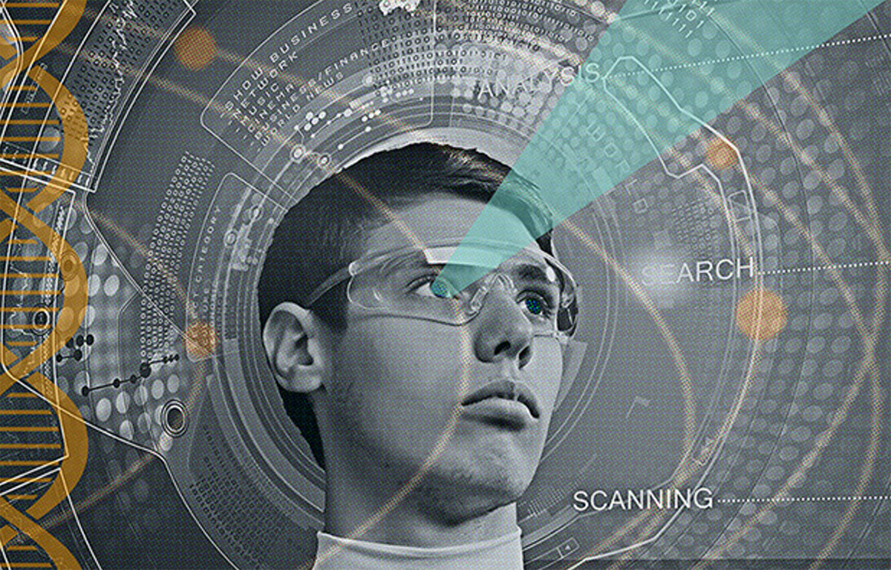
The Internet of Things is rapidly coming upon us. This led Marc Andreessen, a well-known venture capitalist to argue recently that in 20 years’ time every item will have a chip planted inside it. Sensors will ultimately be able to do helpful tasks like keep control of the heating or air conditioning, control the lights in your house or even let you know when you need to get more eggs in, by monitoring the ones in your fridge.
According to Madhumita Murgia (2015) writing for The Telegraph, Marc Andreessen, a technology investor believes that change is coming, and fast. He said:
“The idea that we have a single piece of glowing display [a cell phone] is too limiting. By then [in 10 years’ time] every table, every wall, every surface will have a screen or can project.”
The idea is that a person would then be able to make a call even from a wall or a table. This is termed either ambient computing or ubiquitous computing.
Marc Andreessen´s Samrasa
Marc Andreessen has put his money where his mouth is and has invested $25 million into a start up company known as Samsara, based in California.Samsara was founded in early 2015 by Sanjit Biswas and John Bicket. Sanjit and John previously co-founded Meraki, the cloud networking leader. This company is focused on bigger industrial issues rather than simple household Internet of Things activities. It creates sensors and the corresponding analytics for industries like energy, transport, water and pharmaceuticals.
For example, it is explained that the pharmaceutical industry has to distribute medicines and temperatures need to be kept in check. Such sensors would carry out these activities, is the vision. Research has shown that there will be a great deal more spending on this new technology than that as well. For example, research from Gartner projects that Internet of Things spending will be $1.4 trillion within a five year timeframe.
The Samsara products are already undergoing testing in different sectors, including in the pharmaceutical industry, in city water districts and with a producer of yogurt. It is believed that the sensor system will be better in all of these industries that currently at least to some degree rely on manual reporting. This significantly reduces the cost, and increases accuracy of report. There is also arguably, a lower likelihood of error. Putting in place sensors instead is estimated to reduce costs by replacing existing sensors that are significantly more expensive.
The new sensors produced by Samara have been touted to be just 10 per cent of the cost of the current purchasable industrial sensors on the market. Not only that, but the new sensors will be able to be put into action within a very short time frame – estimated to be less than 10 minutes – compared to the rather more complicated and laborious process (in comparison) with the existing sensors that are available. It is predicted that even human will have a chip implanted in a couple of years, as this video explains:
Currently sensors are explained to be made by manufacturers such as Intel and IBM. One of the main challenges with these for most businesses is that they are rather expensive. It is argued that the problem is that a custom made solution is required in most cases, but this runs into the millions in terms of costs. This means that only very large businesses with strong cash flow are able to afford them, and they are out of the reach of smaller organisations. This is less likely to be the case with the newer industrial sensors that are being built and tested currently.
Marc Andreessen has a very strong belief in the Internet of Things technology, and argues that it will be everywhere within the upcoming 20 years. Indeed, it is explained that Andreessen believes that every physical thing will ultimately be joined up with the internet in this way. Accenture reportedly concurs with Andreessen, at least in the sense that the British economy is predicted to be boosted tremendously by the Internet of Things. It is suggested by Accenture that this is the fourth industrial revolution and it is likely to increase the British economy by £352 billion as soon as the year 2030. When big investor names like Marc Andreessen start to place investments into these types of technologies, it is easy to see how this could start to become a reality very, very quickly.

Paula Newton is a business writer, editor and management consultant with extensive experience writing and consulting for both start-ups and long established companies. She has ten years management and leadership experience gained at BSkyB in London and Viva Travel Guides in Quito, Ecuador, giving her a depth of insight into innovation in international business. With an MBA from the University of Hull and many years of experience running her own business consultancy, Paula’s background allows her to connect with a diverse range of clients, including cutting edge technology and web-based start-ups but also multinationals in need of assistance. Paula has played a defining role in shaping organizational strategy for a wide range of different organizations, including for-profit, NGOs and charities. Paula has also served on the Board of Directors for the South American Explorers Club in Quito, Ecuador.


























